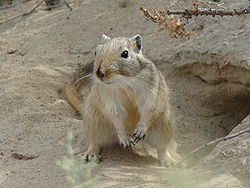Yes, that's right. ENOC Group suddenly had something to say after something like a month of obdurate silence.
Top honours to The National once more, which carries a better researched and more rounded story, taking the opportunity to recap the whole episode and referring to ENOC, with perhaps a grim smile as it rewards weeks of treating the press as if they don't exist or matter, as a 'troubled company'. Khaleej Times couldn't bring itself to name its long-term rival and refers to 'reports in a section of the English media'. Gulf News itself wasn't for stepping down, running ENOC's denial but affirming its report that 'sources in the oil industry confirmed the possibility that other retailers have shown interest in assuming responsibility for those [ENOC's] operations'
Breaking its long silence has certainly brought ENOC to the fore again and will once again step up the pressure from media and the public for some form of clarity. Sadly, there hasn't been a lot of that around but ENOC's statement to the media yesterday does rather protest too much when it accuses Gulf News of baseless speculation.
Here are five rules of Public Relations that may help:
Rule One
News expands to fill a vacuum
This is a Great Truth of Public Relations. If you do not speak clearly and with purpose, you leave room for speculation. The media, like the people it represents, will speculate. Experts, pundits, the public will all speculate. Many will happily speculate for the media to use in its own speculative stories. If you decide to issue 'no comment' or, worse, not to pick up the phone, you have invited speculation round to yours for dinner and have no right to complain when your paintwork gets scratched and your carpet ruined.
Rule Two
Responding to speculation legitimises it
If you respond to one speculative report, you respond to all of them. Many major corporates have a policy of not responding to rumour or speculation, precisely because you really don't want to start affirming or denying purely speculative plays. It's actually a journalistic technique, to speculatively assert something to see if you get a 'bite'. By all means respond to legitimate public concern and hard facts presented to you. But don't fail to respond to those and reserve your powder just to waste it on speculation.
Rule Three
Don't pretend to play hardball
ENOC's statement asks for an apology from Gulf News. This was, in my professional opinion, a basic error (one of very many). Gulf News hasn't apologised and has stood by its story. So where are you going to go now, big shot? If you just let that go now, you just affirmed the story, which only ever discussed a possibility in its original form. Discussing a possibility is, of course, pure speculation. Better not to have gone there in the first place, IMHO...
Rule Four
Tell the truth, the whole truth and nothing but the truth
Interestingly, ENOC's statement only comments on one aspect of Gulf News' story, the possibility that ADNOC will be given the running of ENOC stations in Sharjah and the northern emirates. It doesn't comment on part of the story that discussed ENOC requesting a lifting of the price cap or the strong rejection of proposed solutions by government officials. It only talks to one fact in the whole story, but has now established the principle that ENOC will comment to correct facts presented by media. It's not a rounded statement, where one was most certainly called for.
Rule Five
Have a communications strategy
Have an agreed strategy in place, don't just go knee-jerking all over the shop. The National today gleefully trots out the original statement made to media by ENOC, that the affected stations were subject to 'technical upgrades' and the subsequent lack of any evidence to that effect. Having made a statement that few, if any, believed and then followed that up by totally ignoring the media, the company has now arguably lost public trust. As one commentator in today's National story has it:
“I doubt they want to hang onto the whole network, otherwise they would have supplied them. We’ve gone beyond that point now. It’s all speculation of course, but Enoc may just be trying to get a better price for them.”
That's pretty cynical, no? But it's hard to see what the company's management of the media and public transparency aspects of this story has done to mitigate such cynicism from the public, pundits and media.



